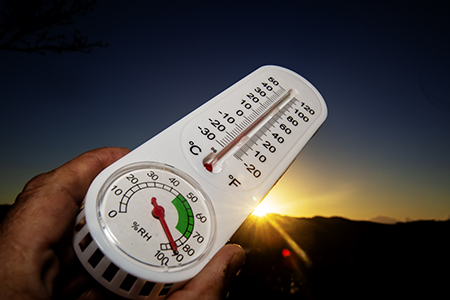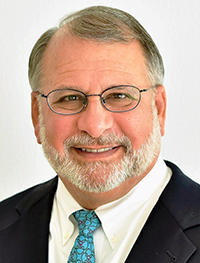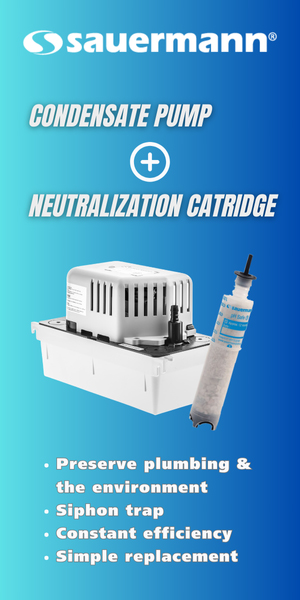For customers who tire of dealing with dry air or the day-to-day hassle of the cheap units, they can integrate whole-house humidifiers into the central heating system. This is where HVAC contractors come in. As a contractor, you can offer to solve the problem of dry air and minimize hassle when you’re replacing their central heating or cooling by adding this into the package with your higher tier options. This can be that little touch that differentiates you from the other guys the homeowner is getting bids from.
The addition of a whole-home humidifier is also a great talking point for selling maintenance agreements. Whole-house systems are great, but being out of sight and out of mind, serious maintenance issues can arise. If you don’t clean the system and replace filters at least once a year, bacteria will grow. The system might become clogged and stop working. Maintenance is a must with these systems and it can be the tipping point that convinces customers that they need your services.
System Sizing, Installation, and Maintenance
Beyond equipment-based solutions, it’s also important to properly size, install, and maintain the complete system for optimal humidity management in both the heating and cooling seasons. Here are three actions every contractor should do:
- Perform a load calculation and right-size the system. Oversized systems result in higher indoor humidity levels during the cooling season because runtimes are shorter.
- Ensure you properly size, insulate, and seal ducts. Leaky return ducts draw in humid air during summer and dry air in winter. Leaky supply ducts create negative building pressure and cause humid or dry air to infiltrate through the building shell.
- Beyond the HVAC system itself, it’s also important to consider the “building side of the duct system.” A leaky building shell will result in higher humidity in the cooling season and lower humidity in the heating season.
By installing properly sized and high-performing systems, you give today’s advanced equipment the best chance of keeping customers comfortable and healthy, and their utility bills low.

Keeping Customers Comfortable, Healthy, and Happy
The key is explaining humidity and comfort issues to customers, then offer potential solutions. This approach provides them options. But understand that too many options can overwhelm a customer. Three options seem to be about right.
It’s important to define the options in terms that relate to the effect on the homeowner’s family (not the technical terms), and always provide a financing strategy that makes all the options equally affordable from a monthly budget perspective. This may sound odd, but to experience the most success, don’t try to up-sell a customer. Just educate them and provide understandable options.
For more information on effective customer-focused sales, contact Dennis Mondul to schedule a High-Efficiency Sales workshop. When it comes to ensuring the entire installed system performs to design, NCI and others offer classes on how to measure and improve system performance using real data.
In the meantime, if you want to take the first simple step in upping your game by serving your customer like no other contractor, there is a way. Differentiate your company from box-swapping competitors by showing the customer how to affordably solve problems that others perceive as unresolvable. Humidity might be at the heart of your customer’s problems, and your competition isn’t even mentioning it!
At this point we would like to make a prediction: The next generation of cutting-edge HVAC contractors will be known as the best because they affordably manage temperature, humidity, and airflow when they work for a customer. Ask yourself this: if you’re not thinking about humidity when you talk to customers, what are you (and they) missing out on?


Ben Lipscomb is a registered Professional Engineer with over 14 years of experience in the HVAC industry including laboratory and field research, Design/Build contracting, and utility energy efficiency program design. He is National Comfort Institute’s engineering manager and may be contacted at ncilink.com/ContactMe.
Dennis Mondul from HVAC Contractor Solutions (HCS), has been doing consulting and training for HVAC contractors in North America since 1992. For answers to any questions regarding this article, contact him at 561/202-4371. You can also reach him at dennism@hvaccsllc.com or submit a question at hvaccsllc.com.













In SW Florida we have run into a lot of sweating ductwork with these new Variable speed systems unless the ductwork is upgraded to R-8. the runtimes are long enough to make R-6 insulation insufficient. The manufacturers do not mention this in their literature but they want to sell more equipment of course. Just an observation from SW Florida.
Charles, that’s great feedback! Thanks for sharing your real world experience with these systems. Good duct systems are definitely the first step in dealing with many comfort issues, and equipment upgrades should always be viewed as the cherry on top.
This article is very lacking in a true understanding of staged and inverter equipment. The turndown is based on a sensible reading from the thermostat. And while the sensible load may be reduced and the equipment turns down to match the load more often than not the latent load stays the same.
Due to the load diversity of all equipment including stage and inverter (roughly 70% sensible 30% latent) the equipment turns the latent capability down to all most nothing. And the latent load is still a full latent load even at none peak conditions.
So even if you get longer run times it is nowhere near enough to overcome the equipment diversity and dehumidify properly. This makes staged and inverter equipment very emery efficient but actually terrible at dehumidification.
Hello Jeremy.
I am posting Ben Lipscomb’s response to your question:
====================
Thank you for your comment. The key to an inverter system managing humidity lies not only in inverter compressors to extend runtimes, but also in the variable speed blowers that they typically come with.
Using a humidistat, it’s possible to put most of these systems into a dehumidification mode that slows the blower speed dramatically. This shifts more of the capacity to latent cooling and helps the system achieve a better balance between temperature and humidity control.
It’s still not a foolproof system, as eventually the thermostat will be satisfied and shut the system off while the humidity could remain higher than desired. Allowing the system to overcool a bit below the setpoint is an option here, but in very humid areas a better solution would be reheat to allow the system to dehumidify all the way down to the humidistat setpoint while maintaining comfortable temperatures.
The devil is always in the details, but the flexibility afforded by inverter compressors and variable speed blowers has the potential to help a lot with humidity problems when properly executed.
Ben Lipscomb, P.E., Director of Engineering
National Comfort Institute Utility Services
I don’t believe sweating ducts are caused by longer runtimes – my experience is that the problem arises from reduced supply air temperature.
As mentioned by others, variable-speed air handlers controlled by thermostats with active dehumidification capability can and do reduce cfm per ton to wring more water out of indoor air. That reduces supply air temperature and con then overwhelms the ductwork insulation’s ability to prevent condensation/sweating.